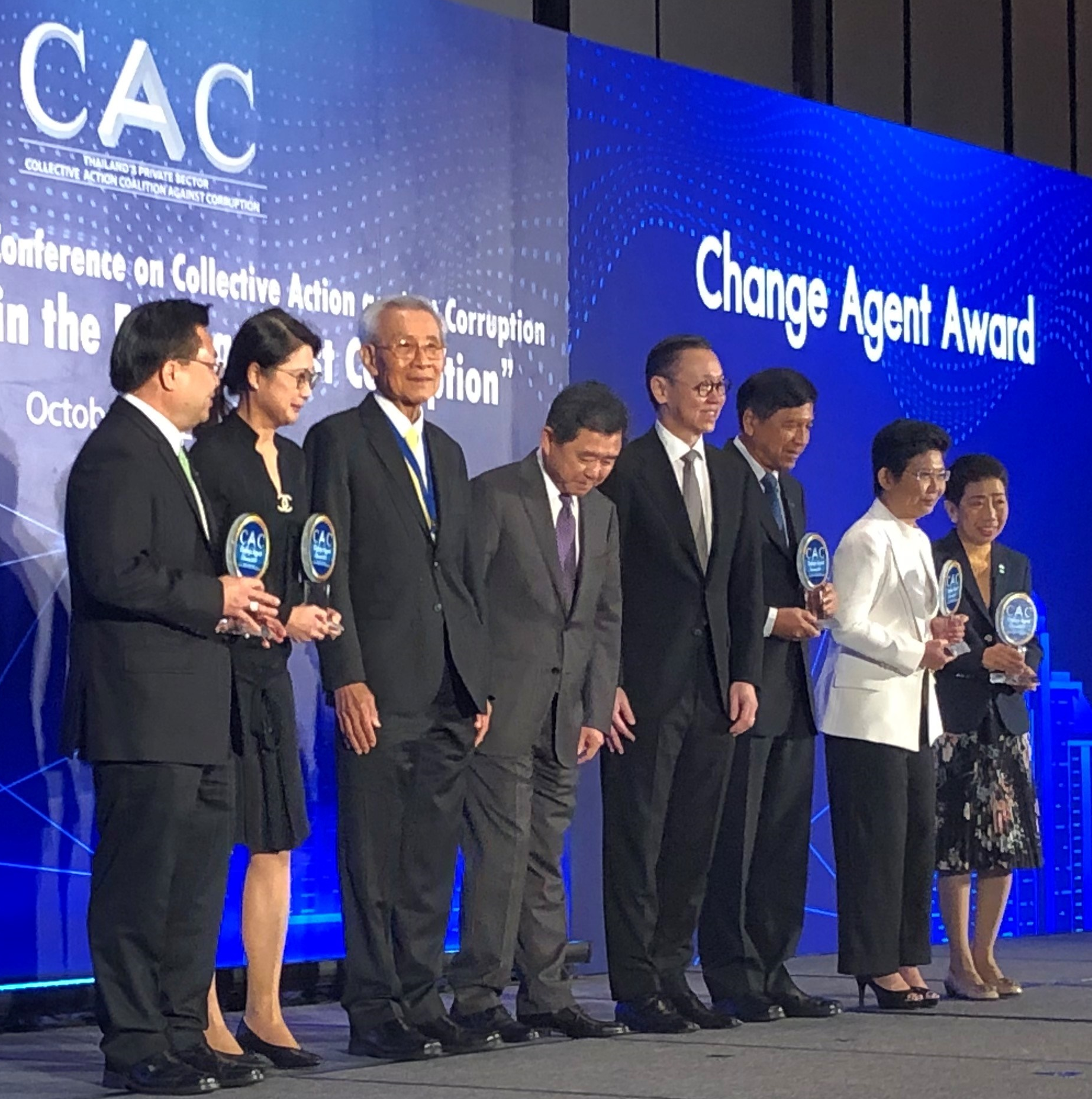In the global fight against corruption, our intuition is often right. We expect countries with faltering governments, fragile institutions, and low per capita incomes to struggle to keep money from going where it shouldn’t—and generally speaking, they do. Likewise, many examples of wealthy countries with strong rule of law and government integrity institutions lead us… Read More
One of the premier anti-corruption events in Asia comes every October when Thailand’s Coalition Against Corruption holds its annual celebration of innovation and achievement. The scene at this year’s event, held at an upscale Bangkok hotel, was typical. Hundreds of men and women in dark suits waiting for their companies’ names to be called… Read More
Image credit: Collective Action Coalition against Corruption By Pana Ratanabanangkoon, Thailand’s Private Sector Collective Action Coalition against Corruption (CAC) Project Director In Thailand, it is customary for businesses to give gifts to customers, business partners and government officials during the holiday season. Gifts can range in size from a bottle of wine to a car…. Read More
Photo Credit: Thailand’s Collective Action Coalition against Corruption (CAC) Bureaucratic red tape and arbitrary decision-making around public services are key conditions that nurture a culture of corruption. Complicated and unclear processes accommodate corrupt practices by creating uncertainties that justify both the demand and supply side of bribery. To effectively mitigate corruption risks, it is essential… Read More
Corruption is a systemic problem that plagues many transitional countries across the world, rooted in weak rule of law and lack of private property rights. Not only does corruption erode trust in public institutions, such practices also hinder economic growth and weaken democratic governance. The corruption challenge can be addressed by building responsive institutions that offer… Read More
Without a strong compliance program, many smaller Russian firms could be locked out of lucrative contracts with big multinationals. By Henry Nelson In countries with weak rule of law, anti-corruption efforts suffer from a collective action problem: because bribery and corruption are endemic and occur frequently, individual small business owners hesitate to reform because they… Read More




